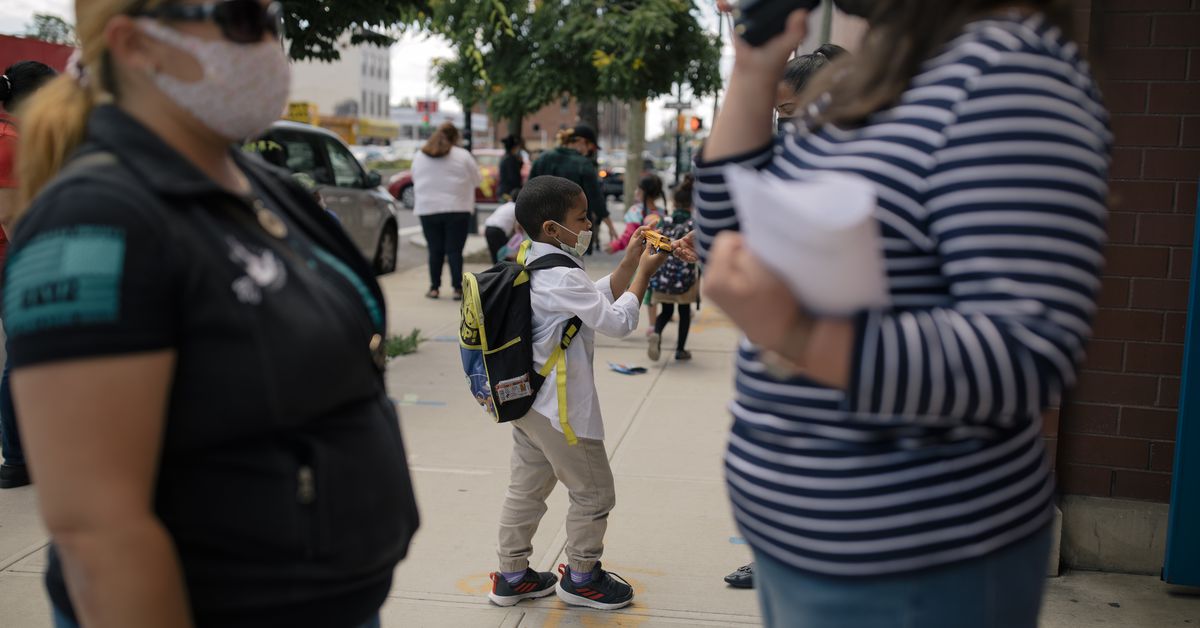REEDER: Illinois not tackling its important education issues | Opinion
I remember the students presenting our fifth-grade teacher with the “gift” like it was yesterday.
Several girls emerged from a restroom with a package wrapped in a brown paper towel bound up in scotch tape and presented it to our science teacher.
He was a socially awkward fellow, bereft of any ability to keep order in a classroom. And his pedagogical skills were marginal at best.
Fifth-graders ate him alive.
There was the day that a student found a box of several hundred Styrofoam balls in a classroom closet and suddenly hundreds of orange balls were flying as students pummeled one another with these would-be components of model solar systems.
Amid the interplanetary warfare, he waved his arms about but was unable to capture the attention of his pupils.
Often amid the daily classroom disorder, he’d exclaim: “If I give you 2.54 centimeters, you’ll take 1.61 kilometers.” (Yes, he even converted the inch and mile in the old adage to the metric system.)
As I have written before, I’m dyslexic. I remember to this day him glancing over my shoulder and telling me I was lazy because I sometimes formed letters backward. Or once I drew a picture with a backward plowshare.
Any teacher with any semblance of competence should have seen I was a child who needed help — not ridicule.
Anyway, back to the “gift.”
When the youngsters gave him his “present,” he cocked his head to a side, gave it a perplexed look and probed the parcel with his fingertips. He then became visibly upset. The girls had wrapped up a sanitary napkin.
I was thinking about the teacher and the surprise offering this month after the Illinois Legislature voted to require Illinois schools to distribute tampons and panty liners at no cost in restrooms used by both girls and boys in grades 4 through 12.
“This is really important for young menstruators who are not able to purchase products and they need this for emergency situations,” said state Rep. Barbara Hernandez, D-Aurora.
But some Republicans said putting tampons into the boys’ bathroom made no sense.
Hernandez argued a boy could fetch them for a female friend in an emergency.
Oh yeah, that’s going to happen. Wives have enough trouble getting their husbands to buy them at the grocery store. How many junior high boys will willingly fetch one for a female classmate? For that matter, how many girls, too shy to go to the nurse’s office, will ask a boy to retrieve a maxi pad for them?
But state Rep. Kathleen Willis, D-Chicago, said tampons in the boys’ restroom could also be used by transgender students who use a boy’s bathroom but still menstruate.
My prediction? A few tampons in the boys’ room will end up in the hands of transgender students. The rest will be used to plug toilets or get soaked in the sink and turned into interesting “wall art.”
Your tax dollars at work.
As for transgender students, I believe everyone deserves to be treated with dignity and respect. I question whether a junior high boys’ restroom is a place where that is often found.
Perhaps the nurse’s office or a faculty restroom might be a more respectful place for a transgender student facing a menstruation emergency.
Now, let me be clear. I’m OK with schools providing free tampons and sanitary napkins. They ought to be in the nurse’s office or in a teacher’s bottom desk drawer where a student in need can retrieve them.
Speaking as the father of three girls, these are expensive products. Let’s not waste resources where they can be used to vandalize rather than help.
But more significantly, I’m frustrated with the legislature debating whether tampons should be distributed in bathrooms rather than nurse’s offices; but not tackling more important issues like teacher quality.
After all, this legislation was one of the most high-profile “school bills” of the last session. That’s unfortunate. So much more needs to be done to improve Illinois schools.
We need to be offering financial incentives to attract the best and brightest college students to enter teaching.
It needs to be easier to replace underperforming teachers.
And more parents, particularly those in low-income neighborhoods, need access to scholarships to ensure their children are not trapped in failing schools.







